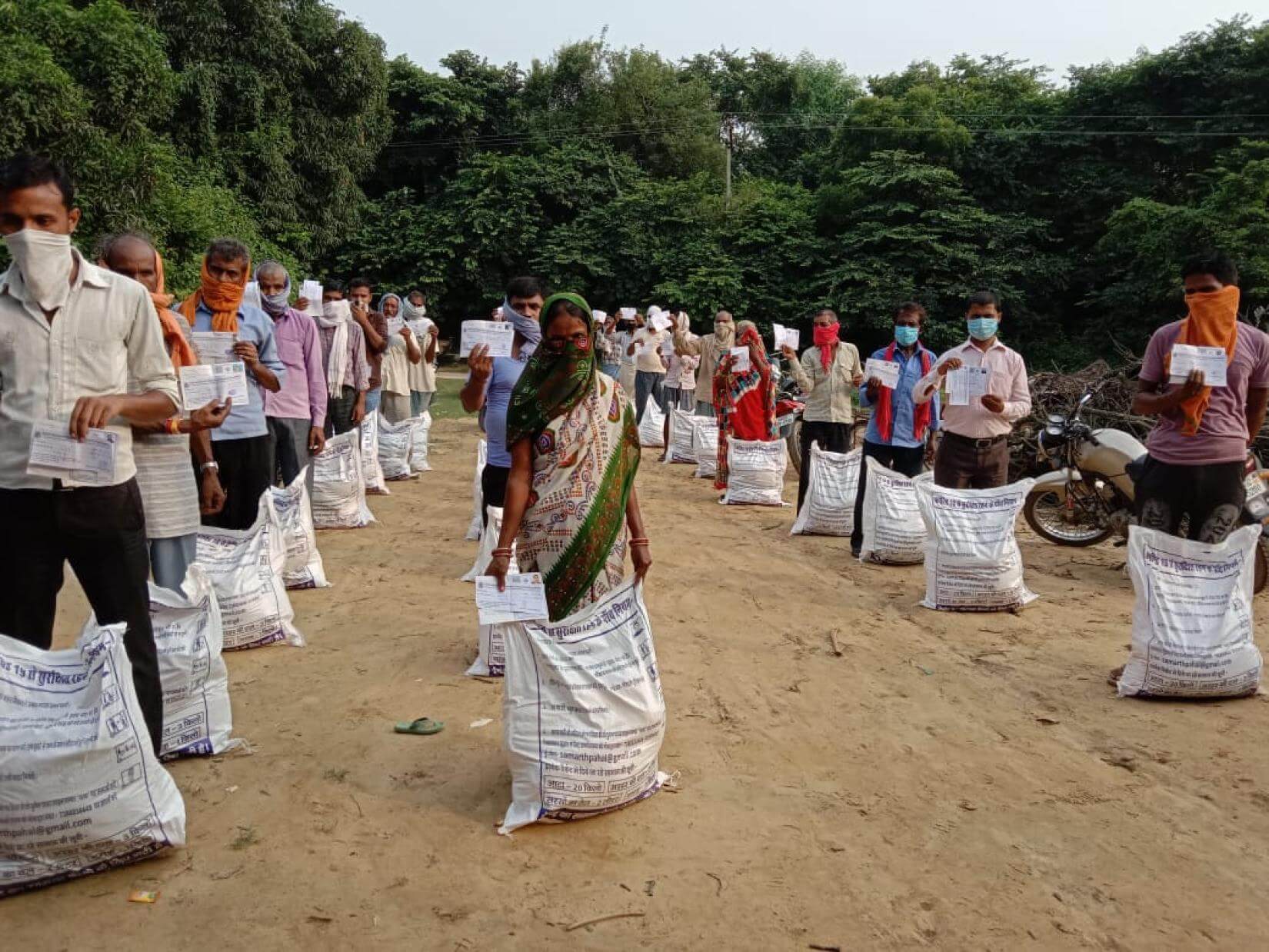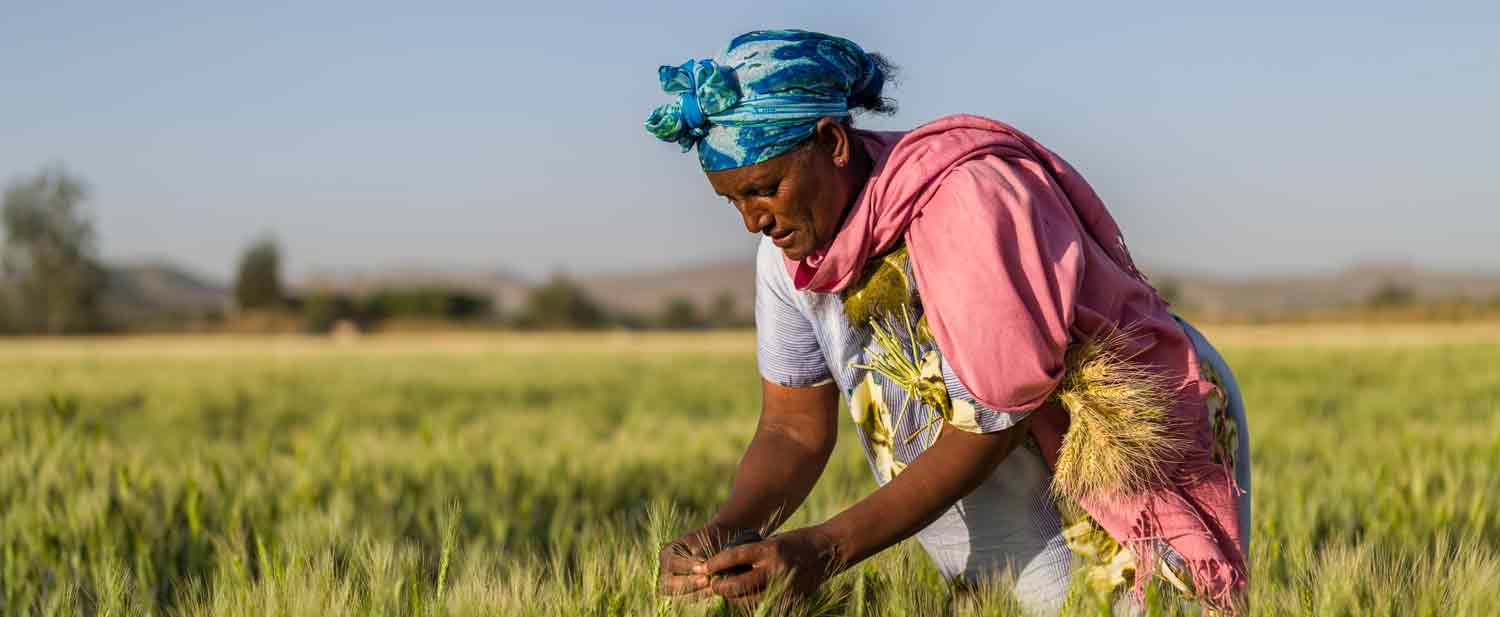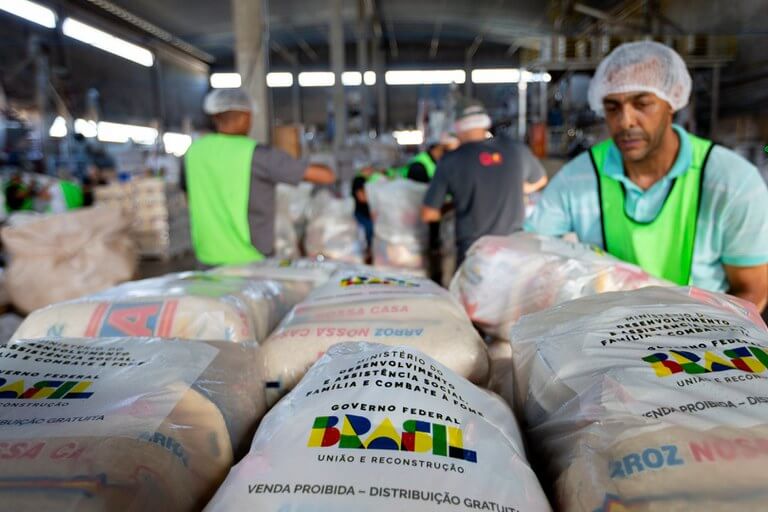BRICS shares solutions to promote global food security
Responsible for 42% of global food production, BRICS countries are joining forces to combat hunger, tackle the climate crisis and promote sustainable agriculture. Initiatives by India, Ethiopia, and Brasil show that cooperation and public policies are efficient paths towards food sovereignty.

By Inez Helena Soares Mustafa | inez.mustafa@presidencia.gov.br
The BRICS countries are leaders in promoting food security and sovereignty, nutrition and sustainable global agriculture. Together, Brasil, Russia, India, China, South Africa, Egypt, Ethiopia, Indonesia, Iran, Saudi Arabia, and the United Arab Emirates are responsible for 42% of global food production; own 33% of agricultural land; and hold 39% of the planet's water resources, according to data from the Brazilian Ministry of Agrarian Development and Family Farming (Ministério do Desenvolvimento Agrário e Agricultura Familiar/MDA).
“Through cooperation, BRICS is uniquely positioned to address the agricultural challenges of the 21st century — such as food and nutritional security, persistent food inflation, and finding innovative solutions to address these issues,” said Thiago Lima, coordinator of International Cooperation at Brasil's Ministry of Agrarian Development and Family Farming.
In 2023, around 733 million people were facing hunger, according to data from the United Nations Food and Agriculture Organization (FAO). The study assesses that food insecurity and malnutrition are worsening worldwide, due to persistent food price inflation that continues to erode people’s incomes and various sectors of the economy.
According to FAO Senior Policy Director Luiz Bedushchi, countries need to continue innovating to accelerate the pace of reducing hunger and poverty, and to achieve the goal of feeding everyone in a healthy way. “These innovations happen more quickly when ideas and experiences are shared,” as has been the case in the BRICS group, Bedushchi said.
Sharing Experiences
BRICS countries have a great deal of experience in developing effective policies and programmes to address agri-food challenges. Negotiations between member countries provide an opportunity to share successful experiences — such as India’s National Food Security Act (NFSA), Ethiopia’s National Wheat Harvest Programme, and Brasil’s National System for Food Security and Nutrition (Sistema Nacional de Segurança Alimentar e Nutricional/SISAN).
Following implementation of the NFSA, India has moved from a food deficit nation to self-sufficiency in food production over the past 30 years, according to the United Nations. “Building our food reserves, especially the strategic ones, was not an overnight journey; it was a long journey in which we became self-sufficient in our agricultural production. We then moved from a situation of food dependence to one of food sufficiency —and then advanced towards food security,” said Jail Patil, joint director of India’s Department of Food and Public Distribution.
Building adequate safety stocks of food grains ensures that Indian citizens do not experience food insecurity during national calamities such as the COVID-19 pandemic, climate disasters, and reduced agricultural production, Patil explained. “We have been able to build up some surplus stocks whenever we feel that there is an increase in the global food rate. This helps the population deal with food price inflation,” concludes the Indian director.
Achieving food sovereignty by modernizing agriculture and promoting food security is one of the priority goals of Ethiopia’s Ten-Year Development Plan (2021-2030). To increase the country’s wheat production and reduce dependence on imports, the Ethiopian government has launched the National Wheat Harvest Program, said Leulgesed Abebe, the country’s ambassador to Brasil. “We are using the irrigation system in the arid and semi-arid regions of Ethiopia, and this has enabled us to become Africa’s largest wheat exporter,” said the ambassador.

To the ambassador, BRICS is both a space where Ethiopia can contribute to discussions and an environment to learn from the best practices of member countries. “This is where I believe Brasil’s role comes in, since the country has done an excellent job in reducing food insecurity and poverty, and in modernizing its agricultural sector. What Brasil has achieved is a source of inspiration for other developing countries,” Abebe stressed. The ambassador added that the group’s negotiations allow for the expansion of agricultural programs, both bilaterally and within the BRICS group.
In line with Sustainable Development Goal 2 (Zero Hunger and Sustainable Agriculture), Brasil has resumed multiple policies for nutrition and combating hunger, such as SISAN, and has become one of the nations that has most reduced food insecurity between 2023 and 2024. An average of 60,000 people per day, enough to fill a football stadium, are now entitled to three meals a day. Furthermore, Bolsa Família, a social program that provides monthly financial assistance to families living in poverty and extreme poverty, protects more than 20 million Brazilian households every month.
Climate Change and Agriculture
“The climate crisis increasingly threatens food production capacity, leveraging food insecurity, especially among rural populations in the Global South and women around the world,” said Thiago Lima. In addition, due to climate change, food price inflation has made these inputs unaffordable for the poorest and negatively affected the living conditions of the middle class, Lima reiterated.

It is estimated that agricultural and livestock production has suffered losses of USD 3.8 trillion worldwide due to climate disasters in the last 30 years, according to data from report The Impact of Disasters on Agriculture and Food Security, also by FAO. This total is equivalent to an average loss of USD 123 billion per year, or 5% of the annual agricultural gross domestic product, the study concludes.
In light of the debate on food inflation, Brasil brought its experience to the BRICS group within the Network of Public Supply Systems in Latin America and the Caribbean. The initiative promotes the exchange of experiences in the development and implementation of public policies to strengthen resilient agriculture, which takes into account large-scale food production and respect for the environment.
Following the climate catastrophe that occurred in Rio Grande do Sul in June 2024, Brasil's National Supply Company (Companhia Nacional de Abastecimento/CONAB) presented to the member countries of the bloc the strategy it used to purchase and donate basic food baskets in that state. According to Marison Marinho, head of the international relations coordination office at CONAB, the emergency purchases of basic food baskets allowed food security to be promoted in the state during the climate emergency, he stated. “This network is a joint action of public supply systems to promote the eradication of hunger,” emphasized Marinho.
The basic food basket is a set of essential foods that make up a family's basic diet, generally calculated to meet the nutritional needs for one month. It was created as a reference to ensure a minimum of adequate food and is used in public policies, minimum wage calculations and social assistance programs. The Brazilian basic food basket varies according to the region, but is generally composed of the following: rice, beans, soybean oil, sugar, coffee, pasta, wheat or cassava flour, powdered milk, bread, beef, eggs, vegetables, and greens.